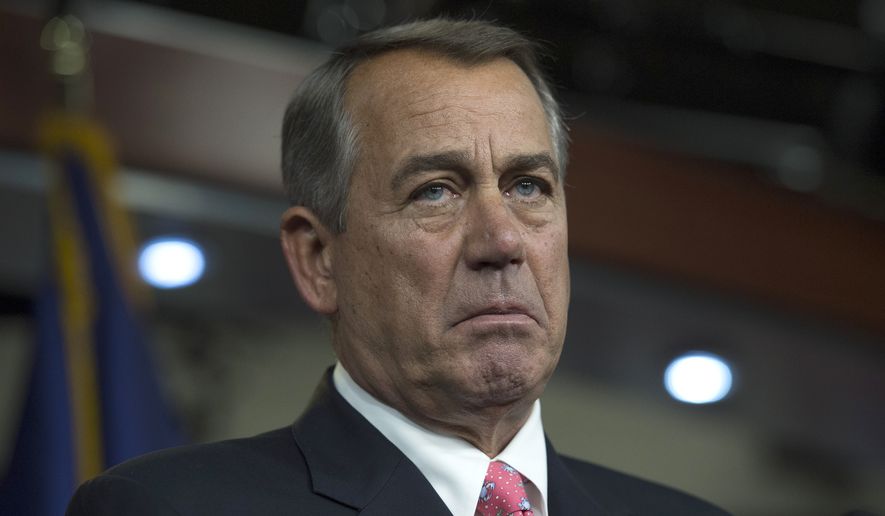A House bill to overhaul Medicare payments would cost $214 billion over the next decade, with $141 billion added to the deficit and the rest covered by wealthier Medicare recipients and changes to reimbursements for hospitals and other providers, nonpartisan budget scorers said Wednesday.
The Congressional Budget Office informed House Speaker John A. Boehner of the legislation’s fiscal impact one day before his chamber votes on the bipartisan deal.
House leaders are hopeful the bill will pass, as lawmakers from both parties say they want to repeal an outdated payment formula known as the Sustainable Growth Rate, which was implemented in 1997 as deficit-cutting tool designed to limit the growth of Medicare by limiting payments to doctors.
But Congress regularly prevents the cuts from taking place, arguing doctors will dump senior citizen patients and spawn a health crisis.
Conservatives are worried about adding billions to the deficit in the same week they tout a balanced budget plan for the coming decade. But the bill’s cheerleaders say the measure would clear the way for entitlement reform and lead to savings in later years.
But scorekeepers said it is difficult to predict whether the reform package will save money beyond the 10-year projection window.
“Considerable uncertainty exists about the evolution of the health care delivery and financing systems that far in the future, so a precise estimate is not feasible,” the CBO said.
Mr. Boehner worked with House Minority Leader Nancy Pelosi to craft the bill, although some Senate Democrats are concerned that it reauthorizes the Children’s Health Insurance Program for two years instead of four.
They also don’t like a pro-life provision tucked into the package, although the language is less “severe” than a ban on spending federal funds for abortion tucked into an anti-trafficking bill they filibustered last week.
The so-called Hyde restrictions have been law for decades, but Democrats say they fear the GOP is trying to expand them to include other types of federal money beyond revenue collected from taxpayers, and to try to enshrine the restrictions into permanent law, rather than the annual spending process.
Democrats argued the trafficking bill’s language extends the ban on spending federal funds on abortion to include money collected as penalties from criminals.
The Medicare bill language, meanwhile, would ban community health centers from using federal funds on abortion, but the provision would expire alongside the funding in two years.
• Tom Howell Jr. can be reached at thowell@washingtontimes.com.




Please read our comment policy before commenting.